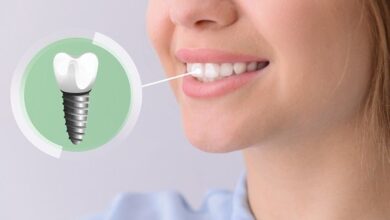Signs Indicating Your Child Needs Braces Treatment

Orthodontic treatment is critical to ensuring long-term dental health for children. Identifying the need for braces early can prevent future complications and enhance overall oral hygiene. Here are some key signs that your child might need braces treatment.
1. Crooked or Crowded Teeth
One of the most apparent signs that a child may require braces is crooked or crowded teeth. Children with misaligned teeth may find it more difficult to practice proper oral hygiene, which increases the risk of cavities and plaque accumulation. If they overlap or appear twisted, it’s crucial to consult an orthodontist for professional guidance. Kids braces can effectively address these alignment problems, ensuring healthier and straighter teeth.
2. Overbite or Underbite
An overbite or underbite occurs when the upper and lower jaws do not align properly. In an overbite, the upper front teeth significantly overlap the lower front teeth. Conversely, an underbite is when the lower front one extends beyond the upper front one. These bite issues can result in jaw pain as well as difficulty speaking and chewing. In addition to promoting a balanced bite and lowering the risk of further dental issues, orthodontic treatment can address these alignment issues.
3. Early or Late Loss of Baby Tooth
The timing of losing baby teeth can indicate potential orthodontic issues. If a child loses baby teeth earlier or later than the typical age range, it may suggest underlying problems with jaw development. They play a vital role in guiding the eruption of permanent teeth. Discrepancies in the timing can lead to misaligned or impacted teeth. Monitoring the pattern of tooth loss and consulting with an orthodontist can help determine if braces are necessary.
4. Difficulty in Chewing or Biting
Children who experience difficulty in chewing or biting their food may have underlying orthodontic issues. This problem can stem from misaligned teeth or an incorrect bite, making it challenging to break down food properly. Observing your child’s eating habits and noting any discomfort or difficulty can provide valuable insights. Orthodontic evaluation can diagnose the root cause and recommend appropriate treatment to improve chewing efficiency.
5. Mouth Breathing and Snoring
Mouth breathing and snoring can indicate orthodontic problems related to jaw alignment and tooth position. These issues can affect the airway, leading to breathing difficulties during sleep. Persistent mouth breathing and snoring can impact overall health, contributing to poor sleep quality and daytime fatigue. An orthodontic assessment can identify if braces or other treatments are needed to address these concerns and improve airflow.
6. Speech Difficulties
Speech difficulties, such as lisping or trouble pronouncing certain sounds, can be related to dental misalignments. The position of the teeth and jaws plays a significant role in articulation. If a child struggles with clear speech, it could be due to issues with their tooth alignment. Orthodontic treatment can help correct these misalignments, improving speech clarity and confidence in communication.
Recognizing the signs indicating your kid may need braces treatment is crucial for their dental health and overall well-being. Crooked or crowded teeth, overbites or underbites, unusual timing of baby tooth loss, difficulty in chewing or biting, mouth breathing and snoring, and speech difficulties are all significant indicators. Addressing these signs through kids braces and orthodontic treatment can result in a healthier, more confident smile for your child. Also, early detection and consultation with an orthodontist can ensure timely intervention, preventing more severe issues in the future




